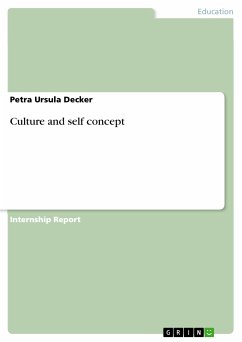Master's Thesis from the year 1999 in the subject Pedagogy - Pedagogic Psychology, grade: 2 (B), LMU Munich (Pedagogics Psychology and Developement Psychology), language: English, abstract: This work is part of an investigation about the concept of human nature (Oerter et al., 1996). The investigation started in 1996 in West and East Germany as well as in Peru. A further investigation took place in 1998. The interviewed persons were between 18 and 25 years old. The researchers were Prof. Rolf Oerter and his co-workers in Germany and Peru (Oerter et al., 1999). The aim was to compare the concept of human nature in Germany and Peru. For my investigation, I analyzed parts of these interviews, which were done in 1996 with West and East German people as well as with campesinos/as, living in the Andes of Peru. I choose this topic, because for me it is very interesting to compare two different cultures with a different background, to find out, if there will be any common ground. The research questions are: Are the levels of the structures about the concept of human nature universal? And: Explain the substructures, which I developed, an increasing complexity about the concept of human nature? The concept of human nature should be understood as a theoretical construction, which you can measure with a certain method, and this is an individual construction about a personal naive philosophy of human beings, which means to stimulate the implicit anthropology, an individual built up during his life span, where the background is defined by his meanings and actions. The five stages about the concept of human nature (Oerter, R., 1995), proved in former cross-cultural studies, which have already a theoretical background, will be explained later on and are fundamental for this work. Therefore, you need to know about the cognitive thinking of human beings, and how to measure this. How to measure cognitive structures? We consider the constructivistic approach for this investigation as an appropriate method. The investigation of the concept of human nature (Menschenbild) (Oerter, R. 1989) includes at the same time pre- and post-constructive activity of the researcher and interviewer, who introduce their knowledge, opinions and theoretical concepts. The results are general levels of the concept of human nature, some specific structures produced by the subjects, includes analytical categories, patterns, and figures of reasoning.
Dieser Download kann aus rechtlichen Gründen nur mit Rechnungsadresse in A, B, BG, CY, CZ, D, DK, EW, E, FIN, F, GR, HR, H, IRL, I, LT, L, LR, M, NL, PL, P, R, S, SLO, SK ausgeliefert werden.









